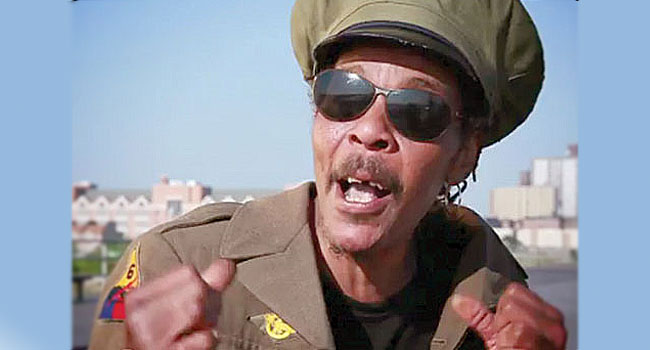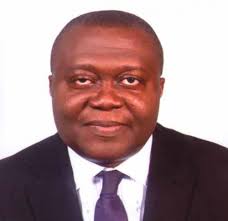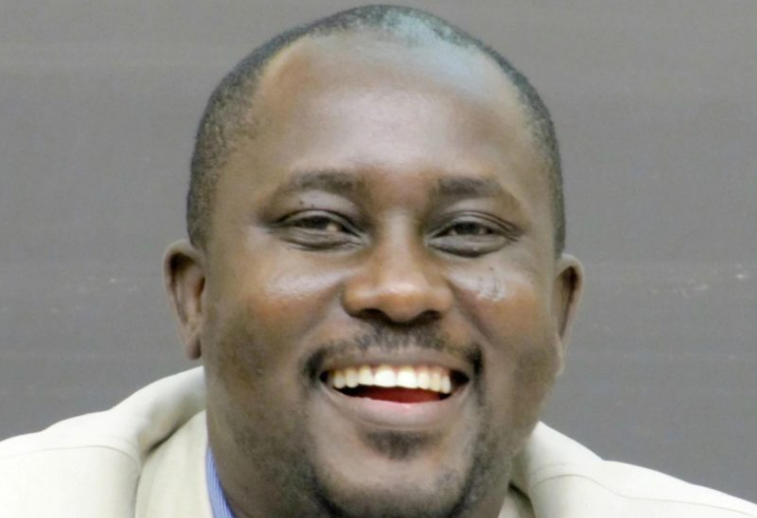By Ehi Braimah
It’s been raining lately in Lagos but when it rained last Tuesday morning, the feeling was quite different. Something was clearly amiss. The downpour had an unusual ring to it: there were loud claps of thunder with dark clouds hanging menacingly overhead; the rains came down in torrents but it was a brief spell. When the news broke that it was finally sunset for Majekodunmi Fasheke (Majek Fashek), it was easy to connect the dots. The “rainmaker” had passed on. Majek died in New York, USA on June 1.
Growing up, we were told comets were seen only when great men departed this world but in the case of Majek, he had an uncommon mystical connection to weather elements. It was difficult to explain but each time Majek staged a performance, it would rain cats and dogs. The news of his demise was also heralded by heavy early morning downpour. Now that Majek is gone, who will send down the rain? Majek, although you’re gone, we need plenty of rain water in many communities without access to water; we need rain water for electricity; farmers need rainfall for bountiful harvests; our plants and gardens need rain water to nurture their green environment and survive. The streams, rivers, lakes will dry up without rain water. To achieve a balance in nature’s ecosystem, we need rain water ooo! Majek, are you there? Can you hear me?
Majek who passed away at 58 had too many things in common with Robert Nesta Marley (Bob Marley), the Jamaican singer, songwriter and musician considered as one of the pioneers of reggae who died on May 11, 1981. Apart from having similar dreadlocks, they had distinctive vocal abilities and creative song writing styles. Majek was an extra-ordinary talent and home boy. It is therefore not surprising his passage has attracted a flood of fond tributes. Godwin Obaseki, governor of Edo state, described the reggae crooner as an enigmatic talent. “I mourn the death of a quintessential maverick musician and Edo son,” Obaseki wrote in his Twitter handle to honour Majek. “Fashek who took the world by storm with his enigmatic talent remains one of the finest cultural icons of his age, and he would be remembered for his disarming craft and skill,” the governor added.
Majek was a shining star in the musical firmament. However, in the twilight of his career, those stars that we were used to no longer glowed; Majek had become a shadow of his former self and to all intents and purpose, he struggled to live. Majek started his musical career from the church where he attempted to play the trumpet until he met his band mate Amos McCroy – now a Pastor – who taught him how to play the guitar.
Majek relocated from his Benin base to Lagos with McCroy, Black Rice and George Orwell to form the Jahstix Band. The life of musicians revolves around a closely knitted fraternity where individual talents are explored to produce hit songs. At this time, you would find the trio at Japex Studio in Anthony Village. Majek became the resident producer at the Studio until he was signed on by Tabansi Records in 1988 where he released his first wave making album, “Prisoner of Conscience” the following year.
The nine–track album contained several hit songs but it was “Send down the rain” that brought Majek instant recognition and fame. The song not only dominated the airwaves but it fetched him six awards including “Song of the Year”, “Album of the Year” and “Reggae Artiste of the Year” at the famous Performing Musicians Employers’ Association of Nigeria (PMAN) music awards in 1989. Now you can understand why the heavens opened up at Majek’s prompting each time he sang this song; that was how he got the moniker, “rainmaker”.
Immediately I heard the news of Majek’s death, I called my brother Kunle Onime, an entrepreneur, showbiz promoter noted for the highly successful Lekki Sunsplash concerts of the ‘90s and chief executive of 97.1 FM, the first reggae radio station in Nigeria based in Abeokuta, Ogun state. “Majek was a raw talent,” remembers Onime. “Apart from singing, he could play any musical instrument. Majek never wrote down any song; they came naturally to him. His stage craft was breathtaking; he had the rare gift of superlative performances that held his audience spell bound. Anytime Majek performed, the audience went wild with excitement and they yelled for more,” Onime added.
From Tabansi Records, Majek moved to CBS/Sony Music in 1989 where he released two equally successful albums, “I & I Experience” and “So Long, Too Long” between 1989 and 1992. In “I & I Experience”, one of Majek’s songs was “Free Africa, Free Mandela”, the reggae maverick protested the continued incarceration of Nelson Mandela of South Africa who became the global symbol of the apartheid regime. Majek worked directly with Laolu Akins who was A & R (Artiste & Repertoire) Manager of CBS/Sony Music at the time. Laolu was the phenomenal drummer in the sensational BLO group of the ‘70s – “B” stood for Berkeley Jones (guitarist); “L” for Laolu Akins and “O” for Mike Odumosu (bass guitarist).
“Majek was a vibrant musical talent and iconoclast,” recalls Akins. “After his stint at CBS/Sony Music, Majek headed to the United States to launch his career on the international scene. He was signed on by Interscope Records where he released “Spirit of Love”. When he returned to Nigeria, Majek was no longer himself; he demystified all the things that made him great. Instead of Majek becoming an object of pity, it was better for him to go and rest because he suffered intractable health challenges before he passed on,” Akins further reflected. “It was pathetic and wicked to recall how some people exploited Majek’s situation by using his name to fraudulently obtain money from sympathisers,” he added.
In his own tribute, Tony Agenmonmen, former Marketing Manager of Nigerian Breweries Plc and President/Chairman of Council of the National Institute of Marketing of Nigeria (NIMN), penned the following words: “The song that brought Majek Fashek into national limelight and fame was “Send down the rain”. There was indeed rain and plenty of it. The co-incidence became mythical. Majek was a bundle of talent and arguably Nigeria’s own version of Bob Marley. His voice was electric and his performances were awesome. It was his time, and it was his moment.
“Just when we thought we were going to have the music king for a while, something snapped and the Majek Fashek we knew was gone. In his place was a shadow. Efforts to bring our Majek Fashek back so many times failed. With his death, Nigeria, Africa and indeed the entire world lost a musical genius. Majek is gone, but he will live in our hearts and his music will endure,” Agenmonmen said confidently.
Also speaking on the passage of the reggae legend, Chief Tony Okoroji, Chairman of the Copyright Society of Nigeria (COSON), said, “In various ways, we will celebrate the life of this incredibly talented Nigerian. Everyone knows that Majek Fashek was not just my colleague, he was my friend. We shared many memorable moments together.”
In the statement released by Chief Okoroji, he also noted that Majek’s passing tore at his heart. ”But I’m consoled by the fact that there is no need to immortalize Majek; he has immortalized himself through his unforgettable songs and lyrics. We will celebrate Majek Fashek to inspire the young people in the creative industry. Hopefully, I will speak with Randy, Majek’s first son, who lives in New York,” the COSON Chairman added. Meanwhile, a condolence register has been opened at the reception of COSON House for tributes to honour the memory of Majek Fashek.
“Kpanlogo”, Majek’s brand of reggae music, made sense because it was a form of “protest” music. His songs projected him as a human rights activist fighting the cause of black people. Also in the reggae family in the 80s and ‘90s were Ras Kimono (of blessed memory); the Mandators, Evi Edna-Ogholi, Orits Wiliki and so on. Wiliki described Majek as a mentor and one of the pillars of reggae music in Arica while Abuja based avant garde entertainer Charly Boy said Majek was not only handsome and talented; his lyrics were powerful and revolutionary.
Majek obviously wowed and captivated music lovers – the outpouring of tributes reflect his prodigious talent and his ability to sing and put up top drawer performances like Bob Marley, his alter ego. Majek was married to Rita and the union was blessed with four children. He relocated his family to the United States a long time ago. His huge dream of playing on the big stage was the beginning of his problem. Although Majek played alongside notable global music icons such as Tracy Chapman, Michael Jackson, Jimmy Cliff, Snoop Dogg and Beyoncé, he became a victim of his own ambition. But even then, we cannot blame Majek for his setbacks or failing health. From the United Kingdom where he was receiving treatment, Majek travelled to join his family. It was an opportunity to make peace with his estranged family before answering the final call. Adieu rainmaker!
Braimah is a public relations and marketing strategist based in Lagos


